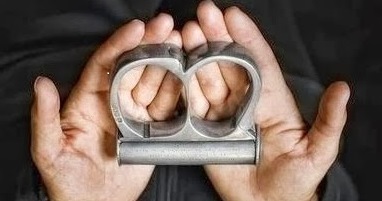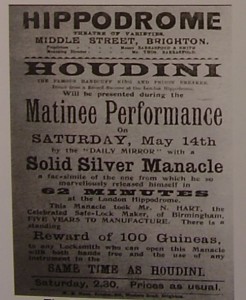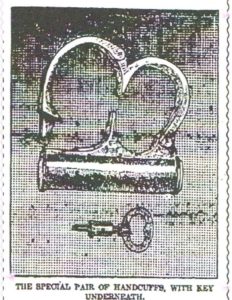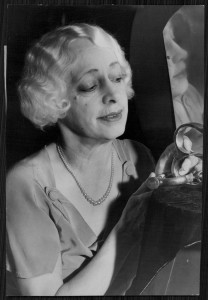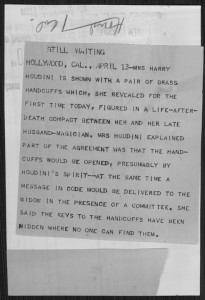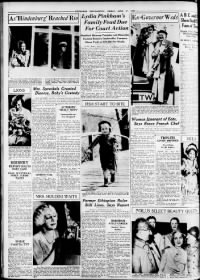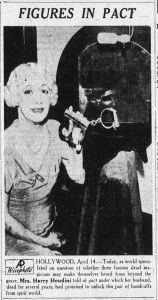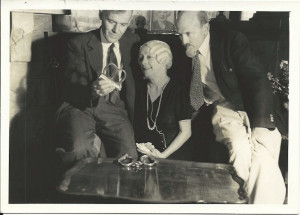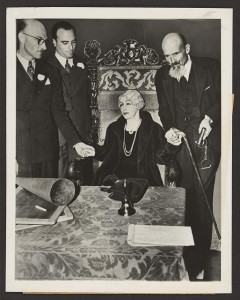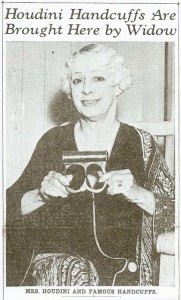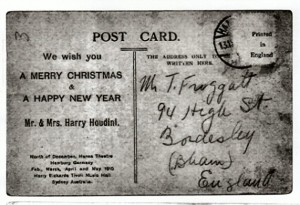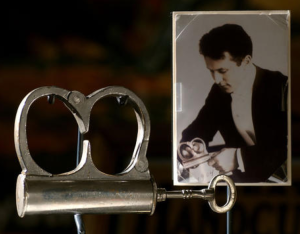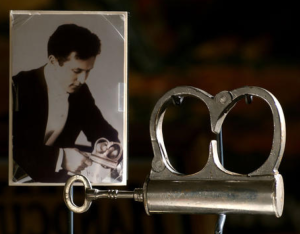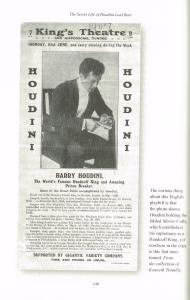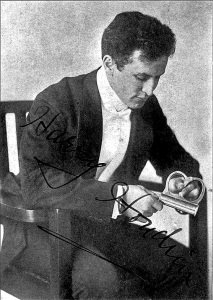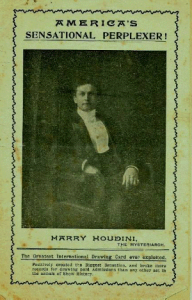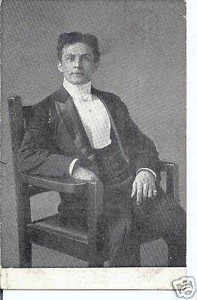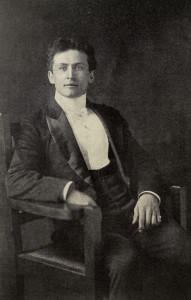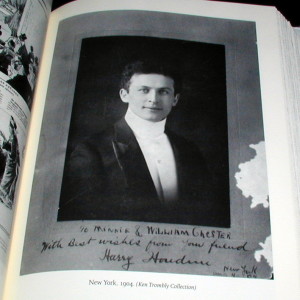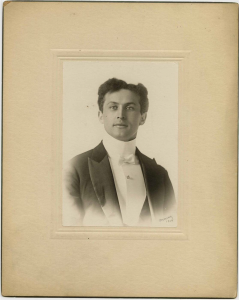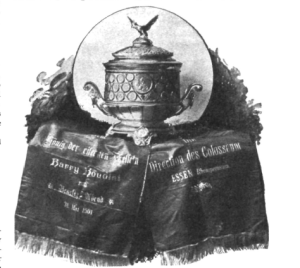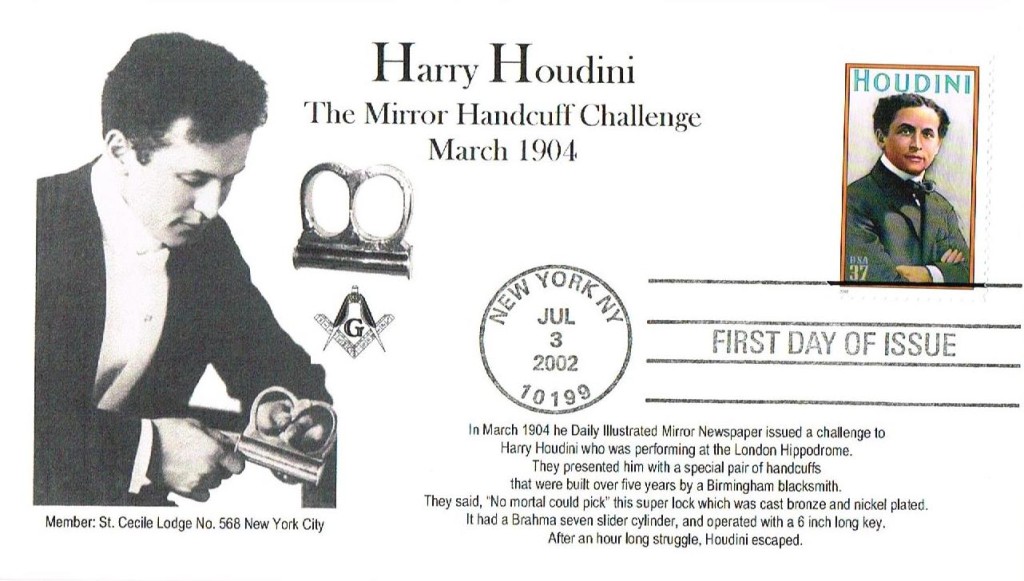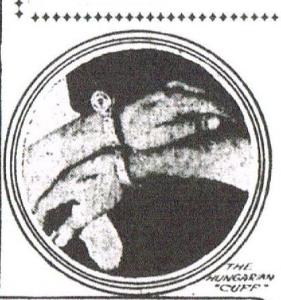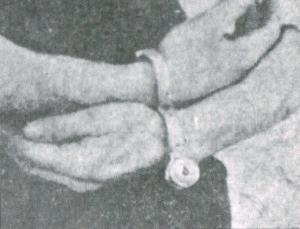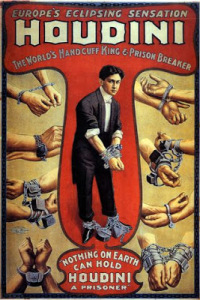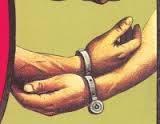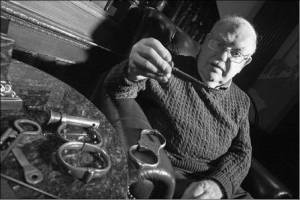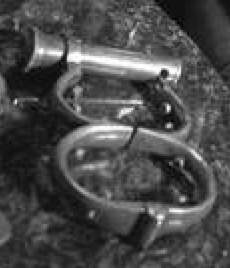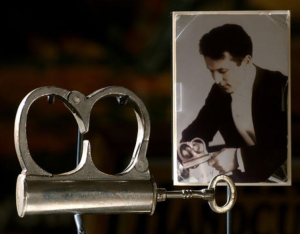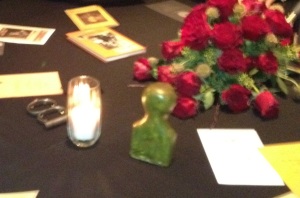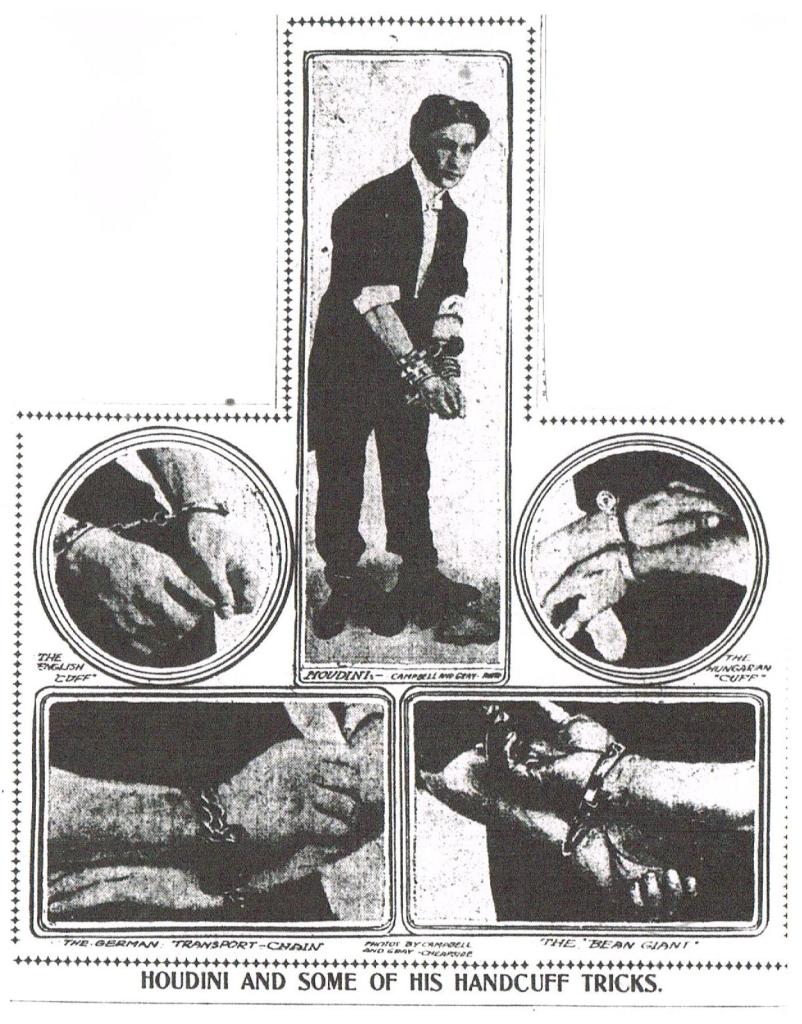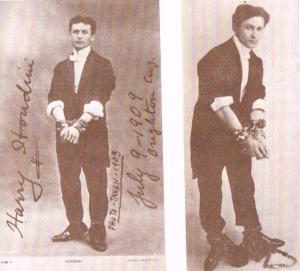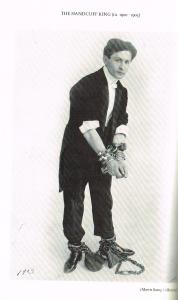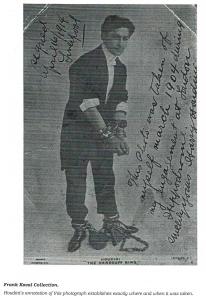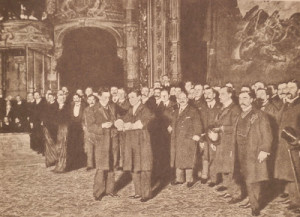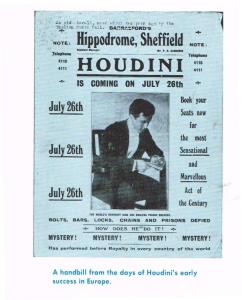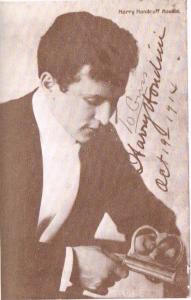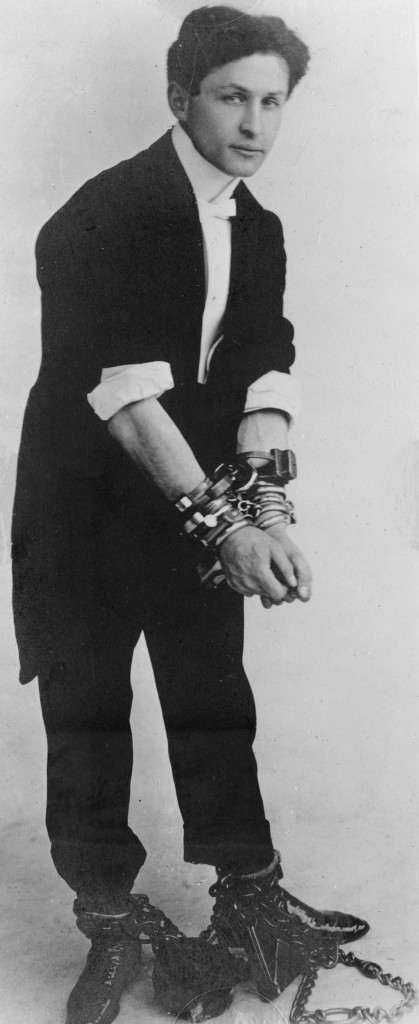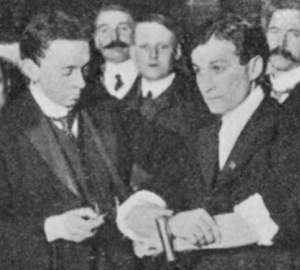
1904 image of Will A. Bennet
One of the many mysteries of the famous Mirror Handcuff Challenge on March 17, 1904 is the identity of the “Mirror representative” who challenged Houdini with the famous cuff. His name, Will A. Bennet was not known to Houdini Historians until January 1, 2014, when I shared an April 1910 article I found from an Australian Newspaper.
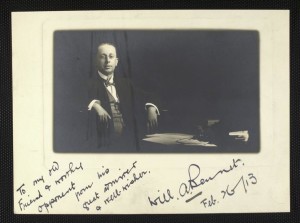
1913 image of Will A. Bennet. (Image courtesy of New York Public Library Digital Collections)
Later in 2014, Paul Davies at Handcuffs.org found evidence that Will A. Bennet was a real person and shared another version of the “How I Handcuffed Houdini” article that appeared in February 1909.
However, the 1909 version of the article did not mention the Mirror representative’s name.
The main difference between the 1909 article and 1910 article is the following sentence:
“Will A. Bennet, press representative, Moss Empires, London and the London Hippodrome, recently told in “Pearson’s Weekly” of a match he made at the Hippodrome with Houdini the Handcuff King, now appearing at the Tivoli Theatre, Sydney.”
Both articles reference the “Pearson’s Weekly” Magazine as the original source.
So did the Mirror representative’s name appear in the original article or did it manifest itself in 1910?
And what is the significance of when and where it appeared?
Thus, the search to find the original article that must have appeared in “Pearson’s Weekly” Magazine sometime between March 1904 and Feb 1909 [April 1910].
Well, thanks to Paul Davies, we know that the original article is not in Pearson’s Weekly in 1904, 1905 or the last half of 1906.
And thanks to a Librarian that I contacted at The British Library, we know it is not in the first half of 1906. So that leaves 1907, 1908 and Jan/Feb 1909 left to search, which are held in microfilm at the British Library. Given its scope, the Librarian suggested I hire a freelance researcher to finish the search. That is when I contacted Narinder Chadda, a Houdini colleague of mine, who grew up in Birmingham and had been following the excellent discussion on Handcuffs.org.
Narinder and his daughter who is completing her MSc studies in London were delighted to carry out this search on everyone’s behalf. Narinder’s daughter did all of the legwork on Thursday.
So what did we find and what is the significance of it?
The “Pearson’s Weekly” was a UK 16PP tabloid magazine published by C A Pearson Ltd, edited by Peter Keary and others. It ran weekly from 26 July 1890 to 1 April 1939. “Pearson’s Weekly” was the first magazine C. Arthur Pearson set up when he left the employ of George Newnes and “Tit-bits” weekly tabloid in 1890. “Answers” magazine created in 1888 by Alfred Harmsworth [who owned Daily Mirror in 1904] was the other imitator of the Tit-bits weekly. The “Tit-bits”, “Answers” and “Pearson’s Weekly” were all successful popular journals that thrived and for around fifty years formed parts of a trinity.
“Tit-Bits” measured about 12 inches high by ten inches wide, normally had 16 pages, and was bound in green covers smothered in advertising. “Answers” was similar, but bound in salmon-pink covers. “Pearson’s Weekly” elected on a larger format, about 15 inches high by 11 inches across, and its 16 pages consequently gave its readers rather more words for their pennies; it was bound in dark red-covers.
“Pearson’s Weekly” was notable for its publicity stunts and fictional short stories.
Fiction – literature in the form of prose, especially short stories and novels that describes imaginary events and people.
- Invention or fabrication as opposed to fact
Does this mean that the story appeared in Pearson’s Weekly as fiction?
Well I can tell you, that the story (How I Handcuffed Houdini) is not listed in George Locke’s 1990 book, titled Pearson’s Weekly – A Checklist of Fiction 1890-1939.
So did the story appear in Pearson’s Weekly as non-fiction?
Click this link to find out what Narinder and his daughter found.
Click this link for some observations of what was found.
Special Thank You to Narinder Chadda and his daughter of the UK and Paul Davies of Australia for their significant efforts in the search for “The Pearson’s Weekly”.
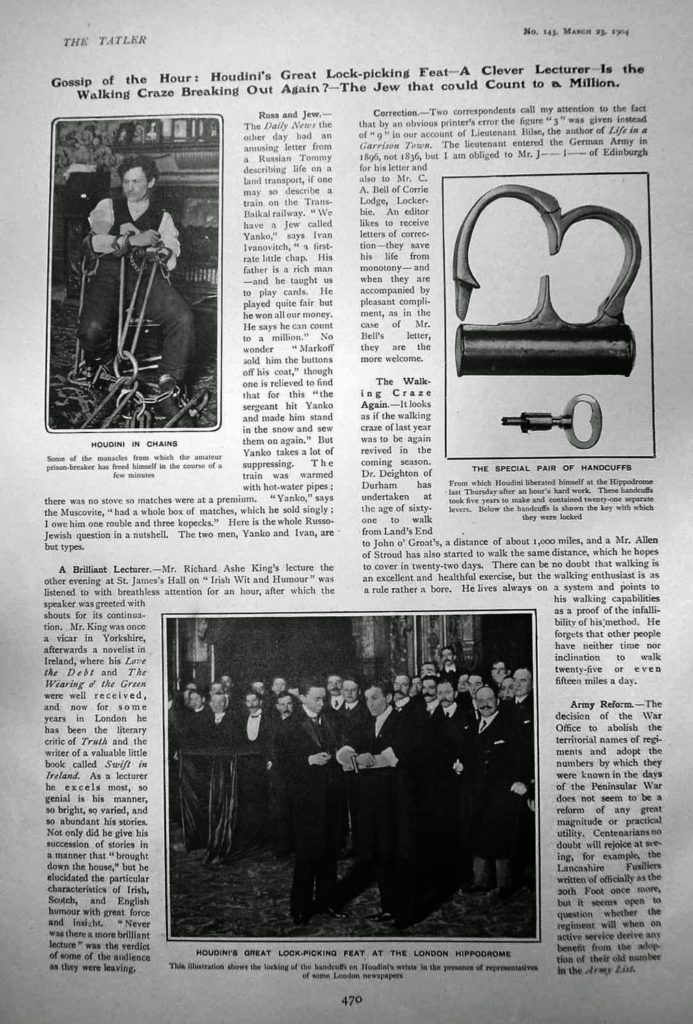 BTW: I am the current owner of this original page which also shows a photo of the then famous event, no article was published with the pictures. Houdini is pictured with the Stage Manager Frank Parker (right, moustache and walking stick) and the Daily Mirror Representative, William Bennet, whose name I discovered and reported on at: http://harryhoudinicircumstantialevidence.com/?p=2610
BTW: I am the current owner of this original page which also shows a photo of the then famous event, no article was published with the pictures. Houdini is pictured with the Stage Manager Frank Parker (right, moustache and walking stick) and the Daily Mirror Representative, William Bennet, whose name I discovered and reported on at: http://harryhoudinicircumstantialevidence.com/?p=2610
